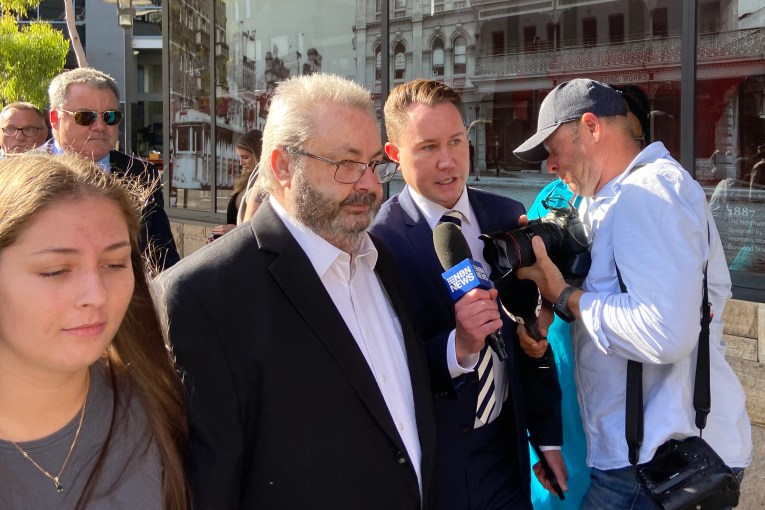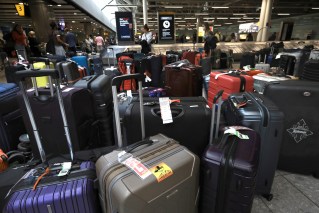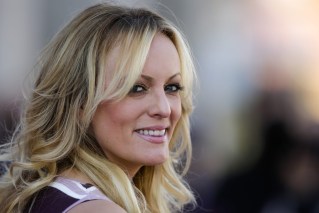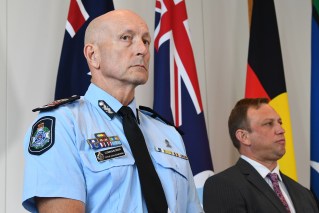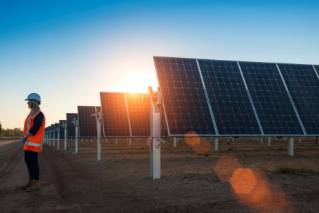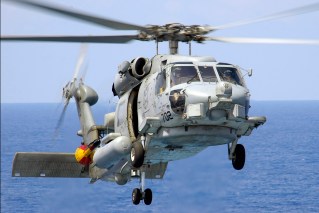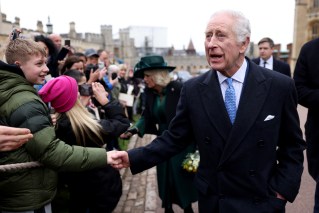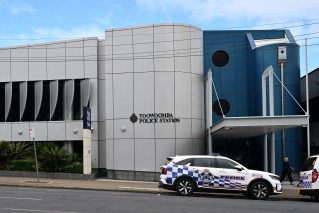Feeding meat to vegetarians, perhaps, but Gabba final a bold new step in code wars
To suggest the Gabba AFL grand final will land a blow on the NRL ignores the fact the Code Wars are not being contested inside stadiums, but rather in school playgrounds and on weekend sporting fields, writes Richard Hinds.
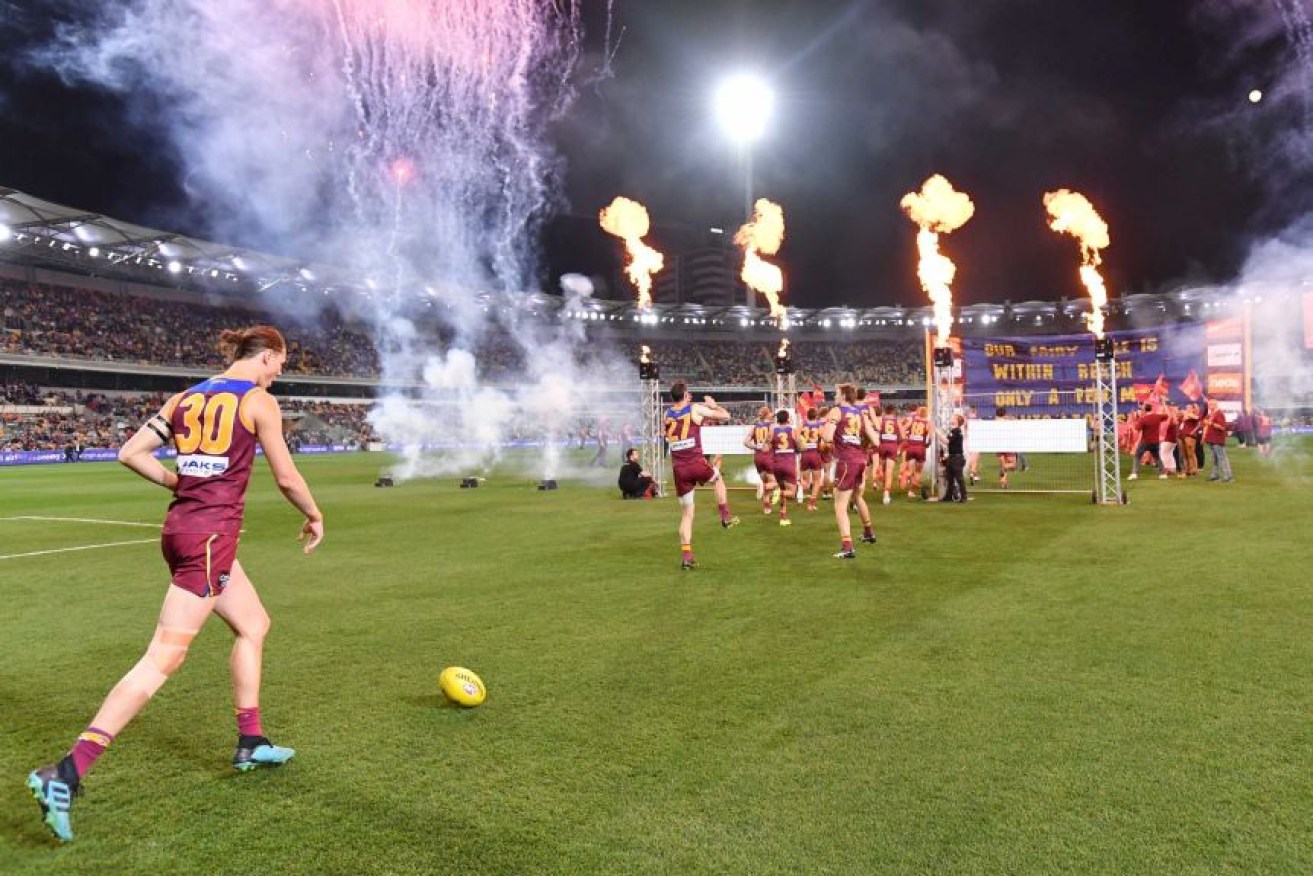
The decision to play the AFL grand final at the Gabba has added to the Code Wars theatre. (Photo: AAP: Darren England)
As an ecumenical sports fan in a country blessed by the possibility of watching any of four football codes during a slovenly iso night on the couch, you are not supposed to say this.
But I don’t mind a good Code Wars battle.
Kevin Sheedy gormlessly pretending not to know – or worse, actually not knowing — the name of NRL stars after stumbling across the Barassi Line into western Sydney.
The late Johnny Warren and his natural successor Craig Foster returning fire to those who ridiculed “wogball” and “boring goalless draws” with their dauntless belief the “world game” would prevail.
Roy Masters and Caroline Wilson sparring like Statler and Waldorf on Offsiders, the “great and glorious game of rugby league” pitted against the smug self-satisfaction of the southern religion.
I know, you’re meant to say, “Why can’t we all just enjoy the games without comparing them?” and “There is plenty of room for all?” — even if, as media rights money and sponsorship dwindles, this sentiment is somewhat naive.
But within reasonable bounds of good taste, the Code Wars theatre is a highly amusing alternative to the po-faced earnestness of on-message administrators.
Enter Australian Rugby League chairman Peter V’landys in tights and cape, leaping from the turnbuckle like a Labrador pouncing on a tennis ball.
Pugnacious Pete jumped into the Code Wars fray this week after the AFL made the not particularly surprising decision to transfer this season’s grand final from the sadly abandoned MCG to the Gabba.
“It’s like feeding meat to a vegetarian,” V’landys told The Courier-Mail of the AFL’s decision to throw a bone to the Brisbane public.
“The vegetarian might try it for a few minutes but then goes back to being a vegetarian.”
Casting Queenslanders as the vegetarians betrays an unexpected misunderstanding of the local market by the NRL chief.
Otherwise, his image of slightly nauseated Brisbane fans picking fragments of Dustin Martin and Nic Natanui from their teeth while they wait for Cam Smith to come and rescue their beloved Broncos is Code Wars gold.
It is also a colourful distraction from the boring truth — Code Wars are not being fought in packed stadiums or with punchy sound bites, but in school playgrounds and local parks on Saturday mornings.
According to The Courier-Mail: “AFL powerbrokers have devised a long-term strategy to take over the NRL in Queensland and believe the Gabba grand final is a springboard towards cross-codes domination.”
In truth, the AFL is no more bent on market domination in Queensland than the world tiddlywinks association is dedicated to replacing football in Brazil.
Despite the Brisbane Lions 2001-2003 premiership three-peat, the flagship club had struggled to maintain profile in recent years.
Meanwhile, the estimated $200 million that will be invested in the Gold Coast Suns is a 20-year project that — when COVID-19 struck — was considered instantly expendable by those heartland AFL clubs who view the Suns as an expensive indulgence.
Thus rather than dominance driven by powerful clubs, the AFL’s plan is merely to gain a sustainable niche in Queensland by developing the game from the grassroots up.
This is based on a rationale that has underpinned much of the AFL’s growth across Australia — those who play the game are many times more likely to watch, attend, buy merchandise and otherwise support the game.
Which, for those who view sport through the prism of elite competitions, brings us to the boring bit.
Development officers spending years finding grassroots volunteers to run programs that ensure so-called “participants” do more than pick up a free pack of goodies at an entry-level clinic.
They provide educational programs and resources for clubs to ensure they have the capacity to absorb increases in participation and improve retention rates at a time when kids are spoiled for choice — and notoriously difficult to budge from screens.
Grassroots investment is vital
The need to work from the grassroots up is informed by those sports that have failed, or have lacked the resources, to capitalise on their rare moment in the sun as much as those who are succeeding.
Remember how after Sydney Olympics thousands of people were so inspired we now have a generation of dedicated dressage riders, hammer throwers and Greco-Roman wrestlers?
Me neither.
The truth was that, as after most Olympics, more kids turned up at athletics clubs or archery ranges that were ill-equipped or not sufficiently funded to cope with their interest and, within months, the normal sporting order was restored.
The difficult spadework required to exploit precious exposure is particularly pressing in female sports given the current crush of major events and the emergence of high-profile stars across the spectrum.
If Cricket Australia was not working hard at the lowest levels supporting club volunteers, March’s T20 World Cup victory would have just been a well-attended Katy Perry concert.
The same could be said of the AFLW’s current profile and — in prospect — the FIFA Women’s World Cup, which will be an opportunity wasted if Football Federation Australia does not use it to drive improved retention rates among the already large pool of early-age participants.
Accordingly, the rhetoric of the deluded AFL advocates pushing the idea a Queensland grand final will be crushing blow for Aussie rules in Queensland and the disdainful responses of NRL loyalists is just more Code Wars white noise.
In the COVID-19 era, the Code Wars winners will be those sports which hold their nerve when cutting budgets and continue to invest in development and growth.
Not those who put on the best laser light show at a displaced game.
Offsiders will cover all the latest sports issues, including a special look at international events, on Sunday at 10:00am on ABC TV.
– ABC / Offsiders columnist Richard Hinds
